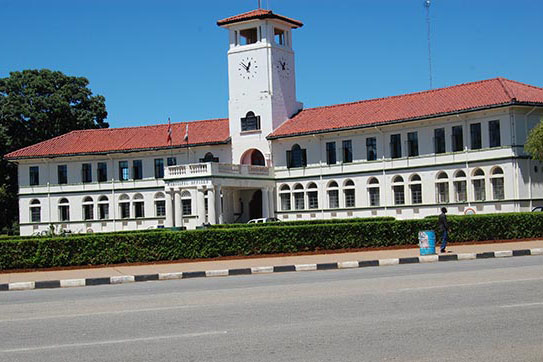
GWERU residents have expressed dismay at the local authority for hiking rates in the Midlands capital.
By Garikai Tunhira
In March, government approved Gweru City Council’s $1,8 billion 2020 budget, which was set to result in tariffs going up by over 500%.
In November last year, Gweru acting finance director Masimba Masimba said the 2020 budget proposal was based on the need to budget for capital projects, which had been suspended.
But last week, the residents said the rates hike was insensitive as it came against a background of “limited or no economic activity” due to the COVID-19 lockdown.
“Gweru Residents Forum (GRF) is also dismayed that the increase is premised on no scientific basis and analysis on how these figures were reached by council without taking cognisance of the socio-economic capacities of the residents,” GRF director Charles Mazorodze said in a statement.
“In the past three years, City of Gweru has not managed to collect at least 45% of the budgeted income. This is a clear reflection that communities are unable to pay the exorbitant rates due to high unemployment rates and dwindling household incomes.”
He said on average, each household was required to fork out $500 per month in council bills. “The deliberate ambushing of residents with exorbitant bills amid a health crisis is not only unfair, but gross dishonesty on part of council to the already hard-pressed citizens at a time when the whole country is grappling with the COVID-19 pandemic,” Mazorodze said.
- Chamisa under fire over US$120K donation
- Mavhunga puts DeMbare into Chibuku quarterfinals
- Pension funds bet on Cabora Bassa oilfields
- Councils defy govt fire tender directive
Keep Reading
He said the residents strongly believed that council should at least take the socio-economic realities of its residents into consideration.
Mazorodze added that in line with the smart city concept, the inclusion of the poor and the marginalised was key.
“The council should revert to the March 25, 2020 tariffs, strike a balance between the service delivery needs of the city and the economic capacities of the communities that they are mandated to serve, come up with a comprehensive plan to ensure an up-to-date register of council-owned properties; and engage residents before taking decisions that have a bearing on their livelihoods,” the GRF director said.
Council spokesperson Vimbai Chingwaramusee said: “(Let’s) also put into consideration that things are now quite expensive for the city, things are quite expensive for the country. For everyone, things are expensive. And as the local authority, we are not spared from these economic challenges, we are not spared from price increases of chemicals that we use to treat our water. We are also not spared from all these financial challenges, all these economic challenges that are being faced by the country.
“So we increased our rates in line with the 2020 budget and to also ensure that we get enough revenue to continue providing services to our valued residents.”












